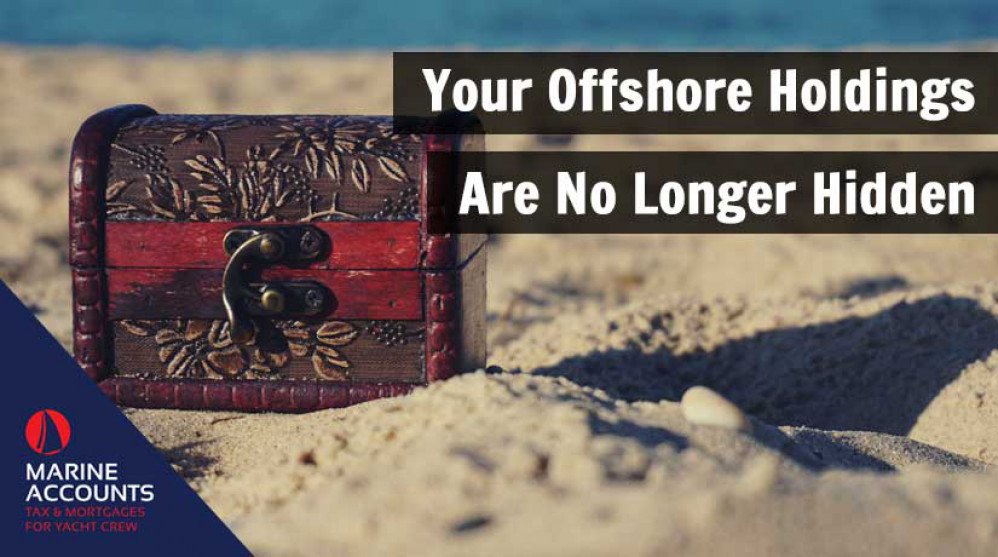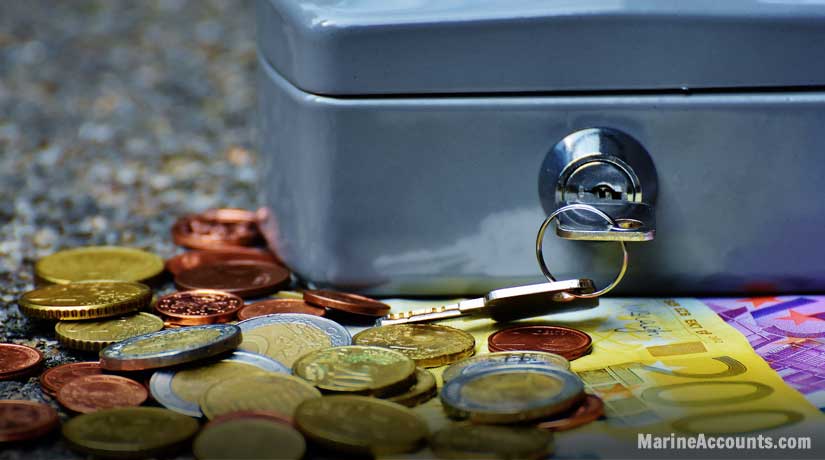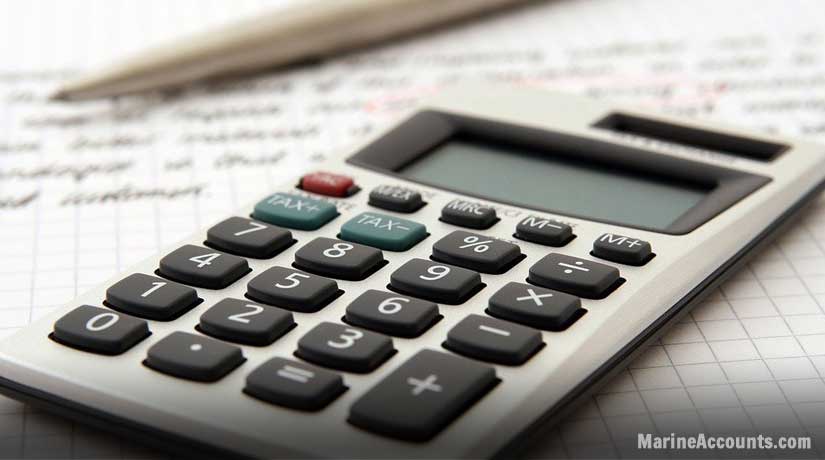Your Offshore Holdings Are No Longer Hidden
- Authors
-
-

- Name
- Patrick Maflin
-

Image source: https://images.pexels.com/photos/1252907/pexels-photo-1252907.jpeg
For many years, there has been a culture within yachting of keeping your hard-earned money offshore and away from the prying eyes of the tax authorities.
After all, you spend little to no time in any particular country, so you don’t need to pay tax. Right?
Our experience of speaking with crew has highlighted that this issue needs addressing in order to help avoid falling foul of the tax authorities.
Whilst you may believe that you do not have tax obligations in any country, this is often not the case.
In this article, we explain why new legislation means that your offshore holdings are no longer secret and correct common misconceptions often heard in the yachting world.
Read on to find out more or skip to the chapter which interests you most.
Chapters
- The Legislation
- Common Misconceptions Among Crew
- "I Bank Offshore"
- "I'm Not Resident Anywhere"
- "I Already File A Tax Return To Declare My Rental Income"
- What To Do Next
- Contact Us

Image source: https://images.pexels.com/photos/210705/pexels-photo-210705.jpeg
The Legislation
The Automatic Exchange of Information (AOEI) has changed the way that tax authorities collect information on the previously undiscoverable holdings of their tax residents.
The legislation allows authorities to request the financial details of individuals who hold their money in any member jurisdiction.
HMRC first deployed their new powers in 2017 and have since been receiving batches of information from areas of previous anonymity such as Luxembourg, Cayman Islands, the British Virgin Islands and more.
New Zealand’s IRD recently also put their new capabilities to work.
As a result, any undeclared income from employment, investments, or rental properties, is now highly likely to be exposed in the near future.
It is therefore imperative that if you have undeclared income, you take the necessary steps to ensure a position of tax compliance.
For more in-depth information on the Automatic Exchange of Information (AEoI), read our article on The Importance of Voluntary Disclosure.

Image source: https://images.unsplash.com/photo-1531141445733-14c2eb7d4c1f
Common Misconceptions Among Crew
Despite the growing awareness and understanding of this new legislation slowly making its way through the industry, there remains a large cohort of crew who remain dangerously blasé about their tax affairs.
Whilst we understand that the world of tax residency can be a confusing and daunting one, it is vital that you understand your obligations and do not fall victim to misleading and inaccurate 'dock-talk'.
In this section, we dispel some common misconceptions that we hear when talking to yacht crew.
"I Bank Offshore"
Due to the ever-increasing list of countries taking part in the Automatic Exchange of Information, gone are the days of being shielded from transparency by keeping your money in an offshore account.
And let’s be honest - does it really get you anywhere financially by doing so?
Aside from not earning interest, it just sits there unable to be invested and bring you a return.
By declaring your income, you are no longer forced to hide your money and can start to reap the benefits of bringing it onshore by having it in interest earning accounts or investing it.
"I'm Not Resident Anywhere"
Contrary to popular myth, very small numbers of crew truly are non-resident anywhere.
The majority of people believe the 183 rule supersedes any other aspect of residency.
However, as per the OECD model, permanent home and socioeconomic ties carry equal weight.
The implementation of CRS and FATCA now have all banks sending letters to account holders asking for verification of details, including tax number and residency.
Unless you can prove you are truly non-resident anywhere, which is extremely difficult, you will need to provide this information or risk being reported to your tax authority.
"I Already File A Tax Return To Declare My Rental Income"
Sadly, this is another common myth that does not stack up.
You need to be seen to be declaring your foreign earnings.
By only making a partial declaration you are not only improperly filing, but you will also prevent yourself from obtaining a mortgage in the future.
Banks will want to see you have earned income, not just gains from rental property.

Image source: https://pixabay.com/photos/accountant-accounting-adviser-1238598/
What To Do Next
If you are confident that you have a complete understanding of your current residency position and obligations, the best course of action is to ensure you have sufficient evidence in place to be able to support your argument should the need ever arise.
However, if reading this article has cast some doubt over your understanding of your tax position, we are here to help.
Our specialist team can clarify your current obligations and if necessary, assist you with getting yourself up to date and achieving tax compliance.
With many countries around the world experiencing times of restrictions, there has never been a better time to lock down your tax affairs.
Contact Us
If you have concerns about your your present holdings and tax position, we want to hear from you.
Don't hesitate to get in touch with our specialist team today or let us know your thoughts in the comments section below.
Any advice in this publication is not intended or written by Marine Accounts to be used by a client or entity for the purpose of (i) avoiding penalties that may be imposed on any taxpayer or (ii) promoting, marketing or recommending to another party matters herein.


